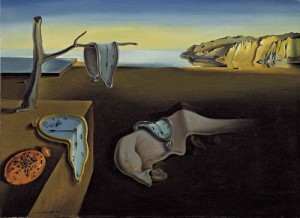I was struck by the hubris and aggressiveness in this Global Times editorial, which includes a number of veiled threats.
With wider strategic interests to be considered, China has to take a more sophisticated approach in tackling the issue. It needs to deal with Japan and keep an eye on its global strategy simultaneously. For a long time, Japan was more developed than China, and once invaded us, but this is no reason for China to be stuck in an inferiority complex.
For now, China should strive to end Japan’s actual control over the islands. But the majority of China’s resources must be distributed globally. More success in other parts of the world will help China to smash Japan’s illusion of taking over Diaoyu.
Solving the issue will be a long-term struggle, but it is Japan that will suffer more since the country is in decline.
After a century of complicated feelings toward its neighbor, mixing admiration, hatred and misery, it is time for China to rebuild its psychological strength against Japan.
I’m not quite sure what that last sentence means but it doesn’t sound good.
Almost all of the news we’ve been reading and watching about the at-times violent demonstrations against the Japanese in China have focused on China’s perspective, according to this article in Slate (and according to my own perceptions as an avid news junkie). “The Japanese see things rather differently,” the writer remarks, “but it’s not like anyone would know.”
We are so used to reading about what angry Chinese are saying about Japan in BBS threads, it’s refreshing to see a similar analysis of what the Japanese are saying.
First of all, the Japanese don’t see China as a victim. China’s nationalism, as belligerent as it may appear, is rooted in a sense of suffering from a “century of humiliation” that goes back to the First Opium War and the British acquisition of Hong Kong in 1842. What some of the more rabid Chinese don’t appreciate, however, is that the rest of the world — especially Japan — does not see China as the underdog.
One Channel 2 discussion thread showed a map of a “unified” China that includes Japan, painted red. “Today’s China is the world’s most aggressive country,” responded one commenter. Another said, “No matter how you look at it, the imperialist nation is China.” Yet another, “ ‘Down with Japan’s imperialism!’—I don’t want to hear that from some guys who have anachronistic territorial expansion ambitions.” In a separate discussion, a commenter wrote, “the next World War will be China vs. the world.” There were also calls for Japan to develop a stronger military of its own and not be so reliant on the U.S.-Japan security alliance. “As America’s power has gotten weaker, Japan must protect its own country.”
Some threads, she writes, question whether these protests are even about Japan, and might instead be an outlet for Chinese people’s frustration with domestic issues, like the great divide between the rich and the poor.
(more…)
For now. These are the most beautiful cats in the world, brothers who are totally in love with one another.

This is a brief podcast I created (with the help of a good friend) in which I discuss how the Internet has transformed the attitudes of millions of Chinese people in regard to sex. This is a topic I explore at length in my book Behind the Red Door: Sex in China, which started shipping last week (finally). I hope you find it amusing and informative.
Podcast_Internet
Obviously there’s much more to be said about the Internet and sex in China, and the podcast is intended only to offer a snapshot of this immense subject. To find out more, please feel free to order the book. This is one of my favorite topics in the book.
Zack and Archie are brothers and are totally devoted to each other. I’ve never seen anything like it; they sleep intertwined, do everything together and watch out for one another. I just got them two weeks ago; wish they could stay kittens forever.

And then they turn over.

There’s a superb first-hand account of what’s going on outside the Japanese embassy in Beijing.
In the middle of the street there was a partition with police directing people to parade around it in long circles. People had huge Chinese flags and banners saying things like “Fuck little Japan.” What I was most surprised by were the number of Chairman Mao posters floating around. I asked a few people about this and the consensus was “Mao would never let Japan get away with this.”
As the crowds paraded around, they sang patriotic songs, chanted “Little Japan, fuck your mother,” “Chairman Mao 10,000 years,” “China 10,000 years” and most significantly “Communist Party 10,000 years.” (“10,000 years” basically means “Long live…”)
This mass outpouring obviously had official sanction. The police’s presence was to direct the protests rather than try to hamper them in any way.
This so reminds me of the simmering hatred of Japan that surged to the top back in 2005 with all the controversy over the Yasukuni shrine. There, too, the police facilitated the protestors, some officers handing them eggs to throw. They take a more active role in curtailing the demostrations after protestors become too violent, hurling rocks at the embassy. We always knew the Diaoyu islands were a tinder box; now it’s exploded. (more…)
It’s that time of year again when China starts the selection process for its coveted “Confucius Peace Prize.” This time the list includes Bill Gates, former UN Secretary-General Kofi Annan and a host of Chinese candidates. Let’s hope it’s not a debacle like the first time when they chose someone who didn’t want the prize and then the next year gave it to Vladimir Putin. They have said it’s not intended to counter the Nobel Peace Prize, though it was conceived, or at least announced, shortly after Liu Xiaobo received the award in 2010. The purpose of the award is to celebrate “Confucius thinking” and harmony.
It’s so easy to be like Tom Friedman and get totally dazzled by the Beijing airport and the Shanghai skyline and the fast railway and revamped subway systems and the spirit of irrepressible optimism that seems to pervade both cities. I was dazzled by it too, and still am. I love it there. And this spirit of optimism isn’t limited to just two cities. I felt it in Chengdu and Kunming, in Xi’an and Guangzhou.
But as I’ve mentioned before, for the past year I’ve been editing an executive summary of weekly business, manufacturing and financial news from China, and I’ve been amazed at the intensity and speed of the current slowdown. There is a poignant story in the NYT you should read about a visiting professor in Chongqing that reveals the misery this slowdown, coupled with the ineptitude and corruption of an uncaring government, is inflicting in people we’re not likely to meet or know much about.
I wanted to find out what was on the minds of ordinary people. What did they talk to one another about? So in 2007, with permission of the authorities, I put up billboards featuring images of trees, like the “wish trees” in Daoist, Buddhist and Confucian temples, where people tie notes about their private desires to the branches, hoping that the wind will blow their prayers to heaven. Chongqing residents stuck hundreds of their leaf-shaped notes onto the branches of my “trees.”
Their wishes and worries were candid, heartfelt and startling: people had lost their optimism and were yearning for security and freedom from anxiety. Income is a primary worry for those who have lost their jobs or land. Pensions and social welfare payments are almost nonexistent. People struggle to pay for education. They can’t afford medical treatment; clinics and hospitals require patients to pay cash in advance. A serious illness can spell financial ruin for an entire family.
China’s one-child policy has turned family life from a source of solace to a font of anxiety. Parents now get just one chance for a child to succeed and to support them in their old age. Single children carry an unbearable burden of parental and grandparental expectations. (more…)

Dali, The Persistence of Memory
Somehow there’s been a shift in the public’s attitude toward 911. After marathon memorials last year, the tenth anniversary of the tragedy, including never-ending streams of documentaries and rehashing of old news footage we’ve all seen too many times, after all of that it seems 911 has receded into our memories. This year there is near radio silence on the anniversary that comes tomorrow. Most media are greeting the anniversary as just another day. I’m sure there will be the usual ceremonies and name readings at the site, but it doesn’t feel like past anniversaries; not at all.
Memory and the passage of time are strange things. The memories sag, they even change. This is nothing new and I don’t mean to offer a course on pop psychology 101, but it is fascinating to witness this sudden altering of consciousness. Maybe it’s a sign that America is growing up and moving on. Not that we shouldn’t remember the dead and the horror of that day, not that we shouldn’t memorialize them, but we shouldn’t wallow in them either. There really does come a time to move on and put things in perspective. This applies to all tragedies, of course. But this year marks a landmark for the US: it is the year 911 breast-beating finally settled down and Americans have decided there is no reason to keep it top of mind all the time. We will never forget the images of that day and all its repercussions, but we are finally seeing it for what it is, a calamity from which America needs to recover and get on with life.




Comments